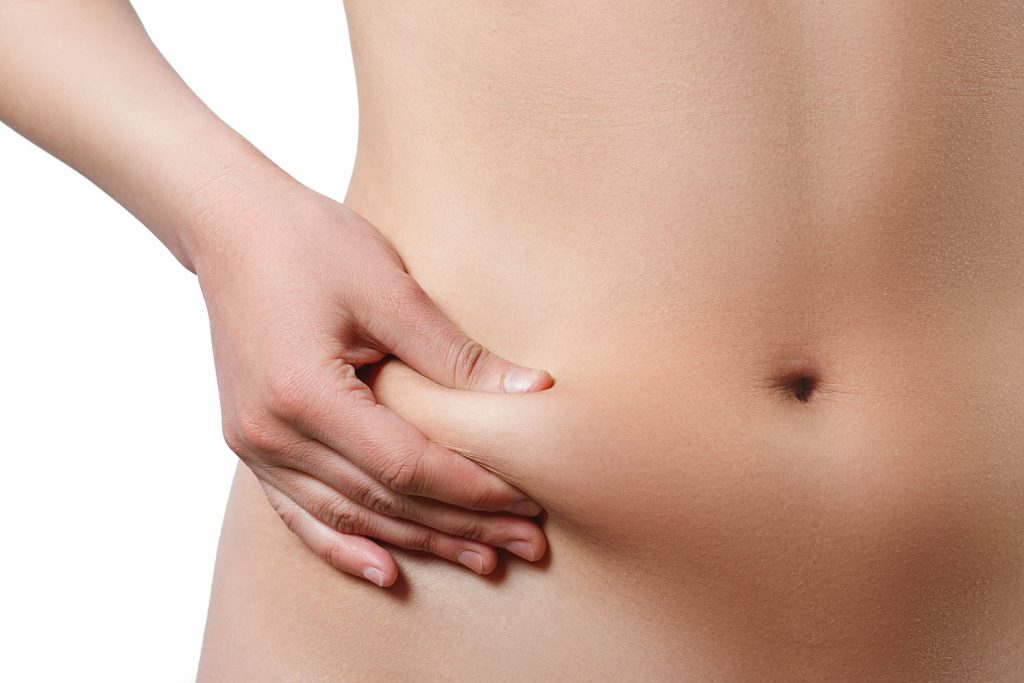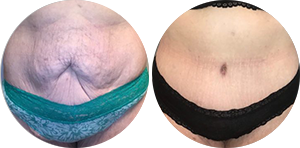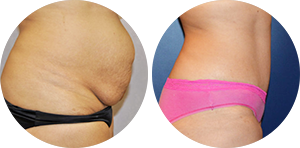Liposuction Surgery
Offered at our convenient location in Raleigh, NC

Items to obtain prior to surgery:
- Antibiotic ointment (aka Neosporin or generic)
- If body work being done, you will need abdominal pads or thick wound pads
- Arnica gel tabs are recommended for bruising (we have some available at the office for purchase)
- Stool softener to take while on pain medications. Recommend Colace or Peri-colace
- Hibiclens soap which is in pharmacy section of most stores (it is in a blue bottle)
- Inquire about lymphatic massage near you. We can recommend someone in Raleigh.
Contents
What To Expect
You may expect to have soreness, bruising and swelling for several weeks. You may notice drainage on the dressings for a few days.
*IMPORTANT*
If you are currently taking any type of birth control, the antibiotics given during and after surgery may interfere with the effects of birth control. You should use a second method for one month post-surgery.
Six Weeks Before Surgery
It is recommended you abstain from smoking and all tobacco products for 6 weeks before and 6 weeks after surgery. Failure to abstain from tobacco may result in your surgery being postponed or canceled as this complicates the healing process.
Two Weeks Before Surgery
*SURGERY FEES DUE AT THIS TIME* Discontinue Aspirin and Aspirin-like products, ibuprofen (Motrin/Advil), Naprosyn (Aleve), Vitamin E, Omega-3, Omega-6, Flaxseed Oil and certain herbs like Ginko Biloba, St. John’s Wort, and Ephedra. Have other vitamins or herbs cleared with our office. You may take Tylenol (acetaminophen), as directed, at any time prior to surgery.
Evening Prior To Surgery
Wash with Hibiclens in areas which are being treated.
*** Do not eat or drink anything after midnight the evening before surgery if you chose to use anesthesia services
Be sure to arrange transportation to and from the office as you will be given an oral sedative and WILL NOT BE ALLOWED TO DRIVE post procedure.
Morning Of Surgery
Wash again with Hibiclens soap.
After Surgery Care
• Your greatest discomfort usually occurs the first 24-48 hours after surgery. During this time, take all medications prescribed by your surgeon as directed. It is helpful to take pain medication with bland food to avoid nausea, which may occur if taken on an empty stomach.
• You need to schedule lymphatic massage treatments the day after your procedure. You need to plan to have at least 2 treatments following your liposuction or as directed by Dr. Allen. This will aid in healing and help reduce swelling dramatically.
• Wear garment as directed after surgery. An additional garment may be picked up at the office.
• Contact the office before taking any Aspirin, ibuprofen (Motrin/Advil) or Aspirin-like medications. You may take Tylenol, if you are not taking a pain medicine that already contains Tylenol (acetaminophen), such as Percocet (oxycodone) or Norco (hydrocodone).
• Drink plenty of non-caffeinated beverages and eat fruit and food high in fiber to avoid constipation. Should constipation occur, discontinue pain medication (if tolerated) and begin taking Colace. For additional relief, you may try magnesium citrate (purchased at your local pharmacy) or prune juice. It may take up to 24 hours to produce a bowel movement. These treatments may be repeated as needed.
After Surgery Activity And Hygiene Instructions
• No lifting over 10-15lb. until cleared by your surgeon.
• When at home, ensure you are ambulating every couple of hours while awake. You may walk for short distances as walking is important to prevent clots from forming in your legs. As you increase your activity, let comfort be your guide. If it hurts, don’t do it.
• Do not resume jogging, aerobics, sexual or vigorous activity until cleared by your surgeon.
• No heavy household chores (laundry, vacuuming, sweeping/mopping, etc.) until cleared by your surgeon.
• You may shower 24 hours after surgery. Do not submerge incisions under water such as in bath, lake, river, pool or hot tub. Leave any small dressings covering incisions in place until your follow up with your surgeon. These may be small, flesh colored bandages (steri-strips) or clear bandages (Tegaderm) over small gauze.
• To help control pain and swelling, continue to wear the garment(s) placed on you at the time of surgery 24/7 except to shower or to launder the garment(s).
• While taking pain medicine, have someone assist you with daily activities, particularly personal hygiene.
• Avoid vigorous upper body motion that requires pushing, pulling and/or lifting heavy objects.
• As you heal and soreness subsides, let pain be your guide for your activity level. If it hurts, don’t do it.
• Check with your surgeon before returning to work, particularly if your job requires heavy lifting or vigorous activity.
• You may drive if you have not taken pain medicine in 24 hours or more. If you have pain with range of motion, you may choose to have a driver until you have good range of motion without pain.
• Avoid sunbathing for 4-6 weeks or until cleared by your surgeon.
• Do not smoke for 6 weeks as smoking delays the healing process.
Wound Care
• You may have several layers of dressings or paddings in the area of treatment. After 24 hours, you may remove all dressings except the flesh-colored bandages (steri-strips) or clear “tape” (Tegaderm). Leave these dressings in place until your follow up with your surgeon. If either of these dressings comes off, please contact our office for further instructions.
Notify Your Surgeon If
• You have a fever greater than 101 that lasts more than 24 hours.
• You develop excessive swelling, redness or warmth of incisions.
• You experience severe pain not responding to pain medication.
• You develop thick, odorous drainage or bleeding that does not subside.
• You experience shortness of breath.


